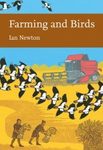By: Teresa Pinto-Correia(Author), Jørgen Primdahl(Author), Bas Pedroli(Author), Marc Antrop(Foreword By)
298 pages, 76 colour & 24 b/w illustrations, 9 tables
![European Landscapes in Transition European Landscapes in Transition]()
Click to have a closer look
About this book
Contents
Customer reviews
Biography
Related titles
About this book
European rural landscapes as we experience them today are the result of ongoing processes and interactions between nature and society. These are changing fast: the future landscapes will be different from those we know currently. Written for academics, policy-makers and practitioners, European Landscapes in Transition is the first to explore the complex histories of rural landscapes in Europe as a basis for their sound governance in future. Tensions between the needs of agricultural spaces driven by economic incentives and a variety of non-agricultural functions are explored to demonstrate current challenges and the shortfalls in the policies that address them. Using inspiring case studies that highlight the roles of regional agents and communities, the authors go further than the usual analyses to illustrate the importance of local context. Written by experts currently working to revitalise the rural landscapes of Europe, the text concludes with suggestions for improving landscape policy and planning practice.
Contents
1. Introduction: a landscape in disequilibrium
2. What is the rural landscape about?
3. Conceptualising rural landscape change
4. Evolving activities in the rural
5. Changing relationships between the rural and the city
6. Landscape policy and planning – managing conflicts and making places
7. Common grounds for colourful futures
Customer Reviews
Biography
Teresa Pinto-Correia is a Portuguese Geographer, with a record of publications on the dynamics and change of European rural landscapes at multiple scales. She develops her research now with focus on the dynamics of agricultural landscapes in the Mediterranean, and how they are affected by different sets of drivers, between production, consumption and protection, creating tensions but also synergies. She coordinates an interdisciplinary research group and she is Director of a research unit with more than 100 researchers, centred on Mediterranean agriculture and environment, aiming to contribute to the sustainability of the production systems and their related ecosystems and landscapes.
Jørgen Primdahl is professor in Countryside Planning and Management at IGN, University of Copenhagen. His background is landscape architecture with a Ph.D. in landscape planning and planning theory. His main research interest is the agricultural landscape (patterns, functions, and change), public policy and spatial planning. He has published extensively on rural landscapes. In 2010 he co-edited Globalisation and Agricultural Landscapes: Change Patterns and Policy Trends in Developed Countries (Cambridge) and in 2017 he co-authored: Landscape Analysis: Mapping the Character and Potential of Space.
Bas Pedroli is a senior researcher at Wageningen Environmental Research and associate professor at Wageningen Universiteit, The Netherlands (Land Use Planning Group), holding a Ph.D. in landscape ecology. He is strongly involved in research and education related to the implementation of the European Landscape Convention and to land use management. He is Director of UNISCAPE and an active member of various other European scientific and NGO networks. He has published many research papers and edited several scientific books. He is engaged enthusiastically in supporting policies for land use and landscape management and nature conservation planning from a sustainable development perspective.
By: Teresa Pinto-Correia(Author), Jørgen Primdahl(Author), Bas Pedroli(Author), Marc Antrop(Foreword By)
298 pages, 76 colour & 24 b/w illustrations, 9 tables





































